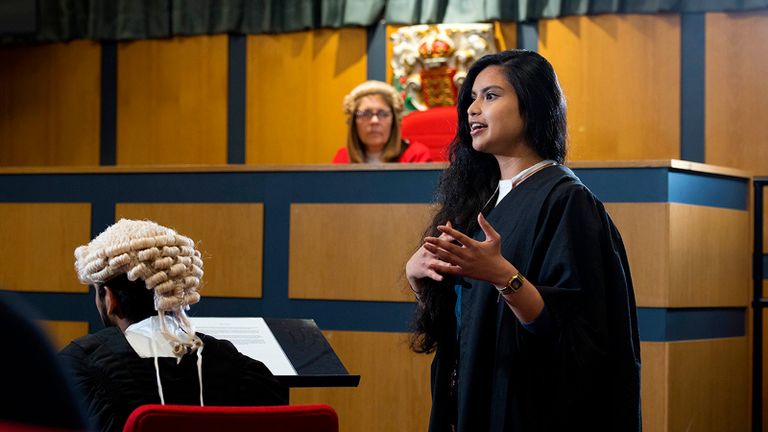University of Central Lancashire
National rank
107
th
73.3
%
Firsts / 2:1s
74.8
%
Completion rate
Key stats
84
th=
Teaching quality
102
nd
Student experience
82
nd=
Research quality
66
th
Graduate prospects

Performance
| Category | Score | Rank |
|---|---|---|
| Ranking | - | 107 (108=) |
| Teaching quality | 74 | 84th= |
| Student experience | 68.9 | 102nd |
| Research quality | 30.4 | 82nd= |
| Ucas entry points | 125 | 63rd= |
| Graduate prospects | 72.9 | 66th |
| Firsts and 2:1s | 73.3 | 96th |
| Completion rate | 74.8 | 124th |
| Student-staff ratio | 16.2 | 65th= |
| World ranking | - | 801= (801=) |
Vital statistics
| Undergraduates |
Full-time 17,291 |
Part-time 1,851 |
| Postgraduates |
Full-time 4,825 |
Part-time 3,977 |
| Applications/places | 21,575/4,925 | |
| Applications/places ratio | 4.4:1 | |
| Overall offer rate | 68.9% |
Accommodation
| Places in accommodation | 1,356 | |
| Accommodation costs | £79 - £135 | |
| Accommodation contact | https://www.uclan.ac.uk/accommodation |
Finance
| UK/EU fees | £6,000 (Foundation) - £9,250 | |
| Fees (placement year) | £1,000 | |
| Fees (overseas year) | £1,385 | |
| Fees (international) | £10,000 (Foundation) - £14,250 | |
| Fees (international, medical) | £46,000 | |
| Finance website | www.uclan.ac.uk/study/fees-and-finance | |
| Graduate salaries | £24,000 |
Sport
| Sport points/rank | 454.5, 63rd | |
| Sport website | https://www.uclan.ac.uk/student-life/sport/university-sport |
Social inclusion and student mix
| Social Inclusion Ranking | 43= | |
| State schools (non-grammar) admissions | 97% | |
| Grammar school admissions | 1.5% | |
| Independent school admissions | 1.4% | |
| Ethnic minority students (all) | 34.6% | |
| Black achievement gap | -27.5% | |
| White working class males | 6.7% | |
| First generation students | 51.9% | |
| Low participation areas | 14.2% | |
| Working class dropout gap | -3.6% | |
| Mature | 40.2% | |
| EU students | 2.4% | |
| Other overseas students | 10.2% |
Student satisfaction with teaching quality
| Creative writing | 93.5% | |
| History | 87.5% | |
| Archaeology and forensic science | 86.9% | |
| Chemistry | 86.4% | |
| Physics and astronomy | 85.2% | |
| Hospitality, leisure, recreation and tourism | 84.1% | |
| Business, management and marketing | 82.4% | |
| Architecture | 81.4% | |
| Sports science | 81.2% | |
| Art and design | 81.1% | |
| Drama, dance and cinematics | 81.1% | |
| Communication and media studies | 81% | |
| Education | 80.8% | |
| Dentistry | 80.4% | |
| English | 78.7% | |
| Social work | 78.4% | |
| Building | 77% | |
| Subjects allied to medicine | 76% | |
| Law | 75.4% | |
| Accounting and finance | 74.4% | |
| Biological sciences | 73.7% | |
| Physiotherapy | 72.8% | |
| Psychology | 72.8% | |
| Sociology | 72.6% | |
| Criminology | 70.6% | |
| Computer science | 68.1% | |
| Pharmacology and pharmacy | 65.4% | |
| Civil engineering | 64.1% | |
| General engineering | 64.1% | |
| East and South Asian studies | 63.7% | |
| Nursing | 63.6% | |
| Aeronautical and manufacturing engineering | 62.6% | |
| Mechanical engineering | 61.2% | |
| Social policy | 60.9% | |
| Music | 53.4% |